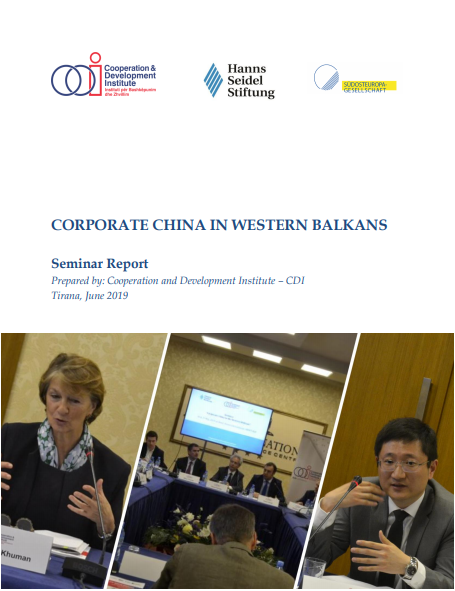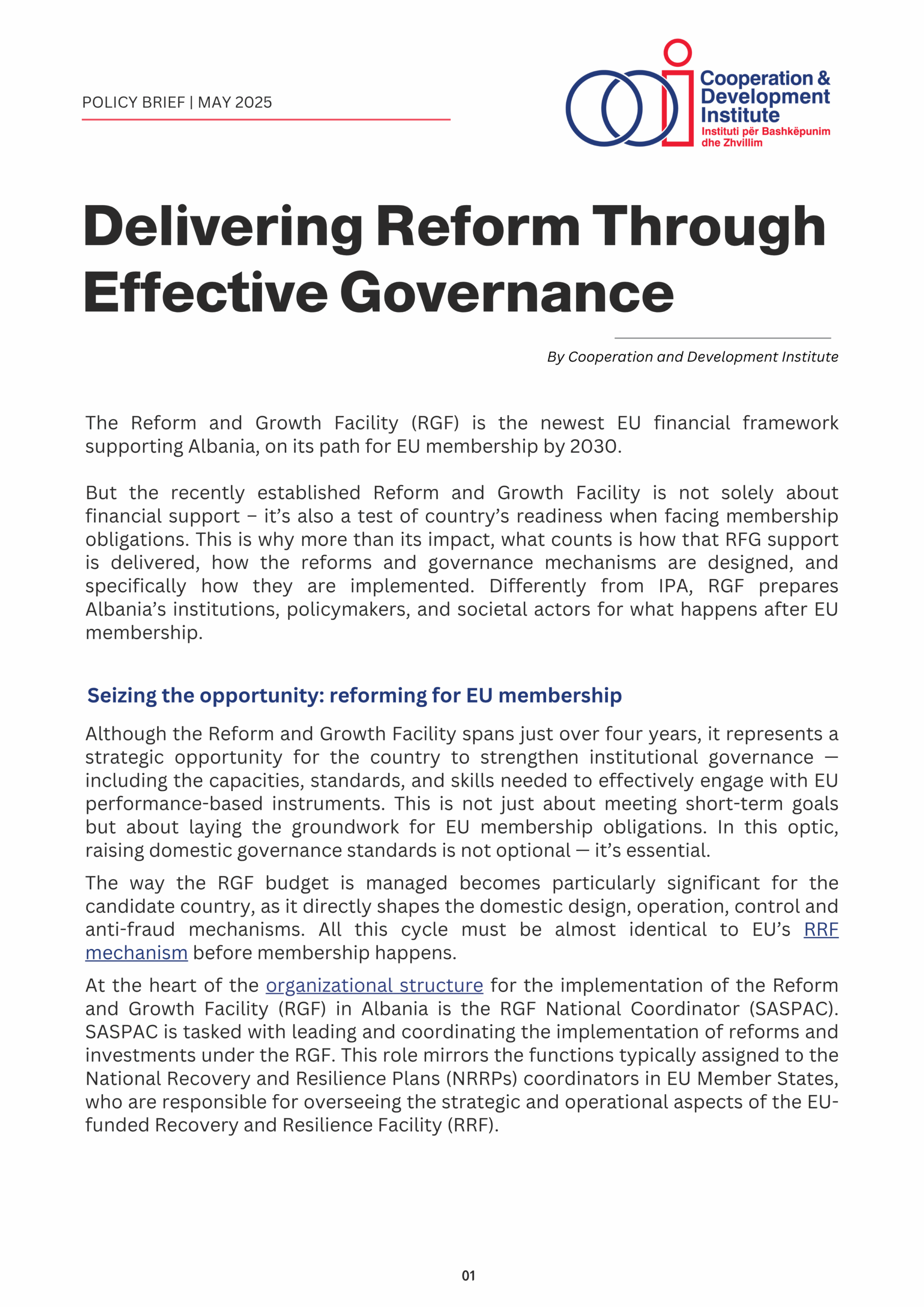Corporate China in Western Balkans

Round table “Accession negotiations and country reforms: Chapters 23 & 24”
May 30, 2019
SAGOV meeting with CDI in Bari
June 11, 2019The Belt & Road Initiative has spurred the production of a large number of data, information on and research into Chinese endeavors in the Western Balkans (WB). This existing body of knowledge has created the base from where further and more focused research can be carried on, and relevant information needed for decision-making can be produced.
In the Balkans, the main challenge of the region remains the ever-lasting transition towards European standards of democracy, institutional efficiency and a market economy, as well as the gaping need for significant investment in infrastructure and production facilities. Lately, Chinese companies have been increasing their investment and involvement in the region.
The main pull factors in the Balkans are the region’s huge investment needs in infrastructure, re-industrialization and the improvement of public goods and services, exacerbated by the lack of access to the EU Structural Funds. The main economic push factors for China relate to the availability and competitive prices of Chinese technology; the Western Balkans geographical location on the BRI road- and maritime corridors; a decent return on investment (ROI) rate; and the WB access to EU market quotas.
This report is a written version of the contributions made during the international seminar organized by the Cooperation & Development Institute (CDI), in partnership with Hanns Seidel Foundation (HSS) and the Southeast Europe Association (SOG), held under the title “Corporate China in Western Balkans”, on 16-17 May 2019 in Tirana, Albania. The report has been prepared by Ardian Hackaj, Research Director at Cooperation and Development Institute based on seminar notes and recordings, and enriched with additional data provided from the participants after the seminar, and / or references of their previous research and / or publications.
Tags: China, Connectivity, Economy, Transport, Western Balkans




National Parliament and the Reform Agenda 2024-2027
Read more